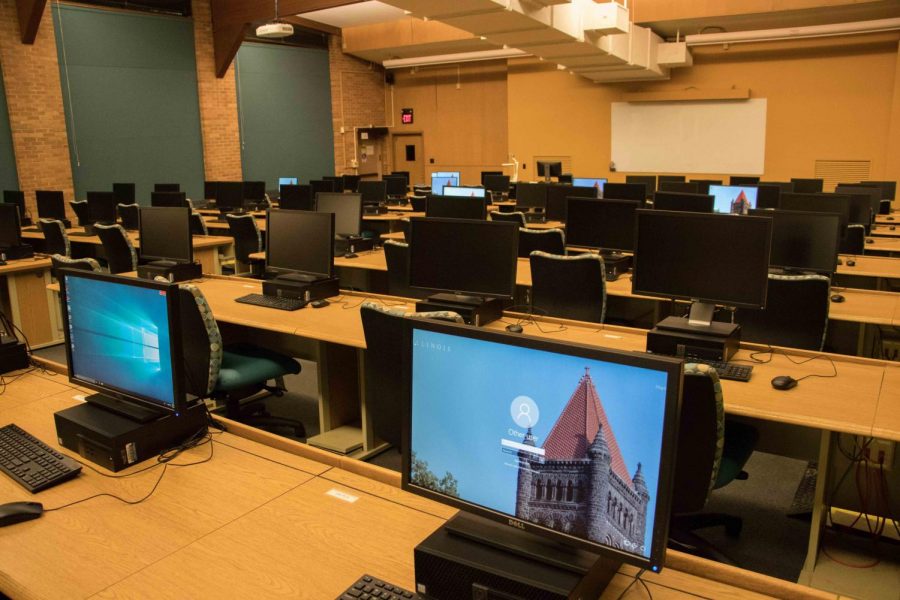One-sixth of computer science class caught cheating
The inside of computer lab located at Oregon Building, where the CS105 lab session is held.
Mar 8, 2018
One-sixth of a CS 105: Introduction to Computing for Non-Tech majors class plagiarized a single source on a lab assignment, according to an email sent out by the professor on Feb. 22.
“It makes me terribly sad to fail one-sixth of the class for cheating on a lab that was a walk-through,” said computer science professor Albert Harris in the email sent to his students, detailing the incident.
According to the email, each plagarized submission had the same error. During the lab, students were found accessing their phones and communicating in a language unknown to the professor.
Vikram Adve, interim head of the Department of Computer Science, said it is particularly easy to cheat in a programming class because students can just copy the code.
“Some classes use automated tools to detect cheating, which can be effective in large projects, but not the small programming exercises in introductory classes,” Adve said in an email.
Get The Daily Illini in your inbox!
Jaclyn Broms, freshman in Business, took the class last semester and said Harris would remind students throughout the semester it is easy for him to know who is guilty of cheating and who is not.
The course policy for the class indicates the sanctions for cheating on a programming assignment include a loss of all points for the assignment and a lowering of the final course grade by one complete letter grade.
“We have not yet determined (how the students who cheated will be dealt with) exactly, and I also cannot comment on specific students,” Adve said.
Adve said he personally thinks one of the most effective approaches to reduce cheating is an honor code that would be enforced University-wide and has students promise not to cheat.
“Rice University does this to great effect,” he said. “On the other hand, Rice is 10 times smaller than (the University) and the Honor Code has existed there for a long time. It would be an enormous pragmatic and political challenge to deploy something like that (here).”
To combat cheating and to prevent it from happening in the future, Adve said clear policy statements are key.
“Making clear what software, if any, may be imported and what must be original is important,” he said.
He also said there is a difference between discussing a problem’s solution at an abstract level, which is encouraged between students and software engineers alike, and simply copying a code.
Adve said many students are often tempted to copy code when they realize the assignment is due the next morning, and they have just started it.
“Encouraging students to get started early helps them avoid situations in which they are tempted to cheat. Rewarding early submission of partial solutions along the way incentivizes students to stay on track,” he said. “Allowing late turn-in, with penalty, instead of an all-or-nothing deadline, can also be helpful.”






